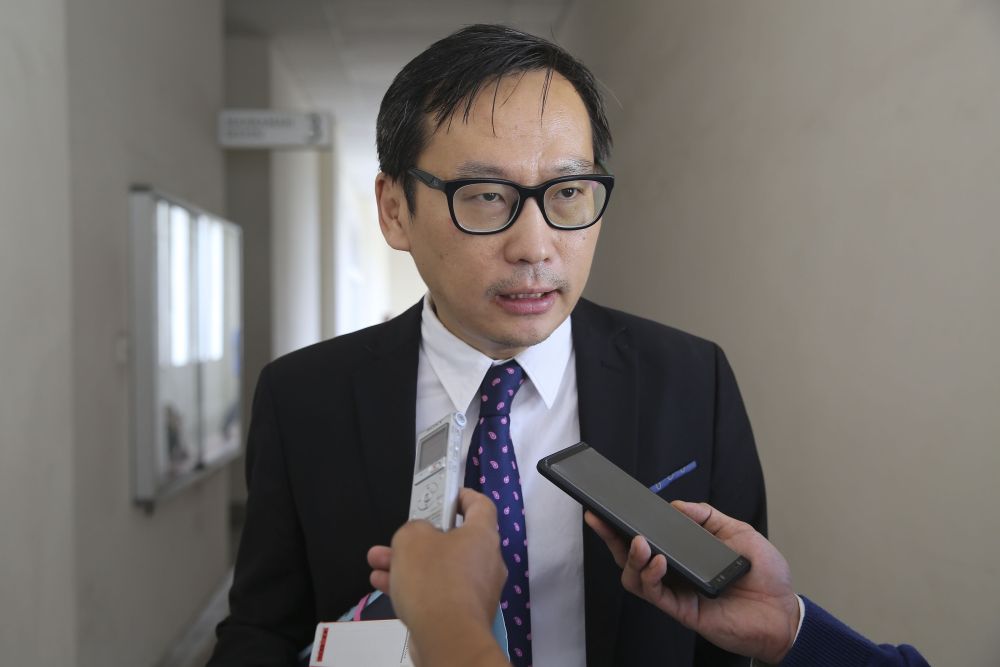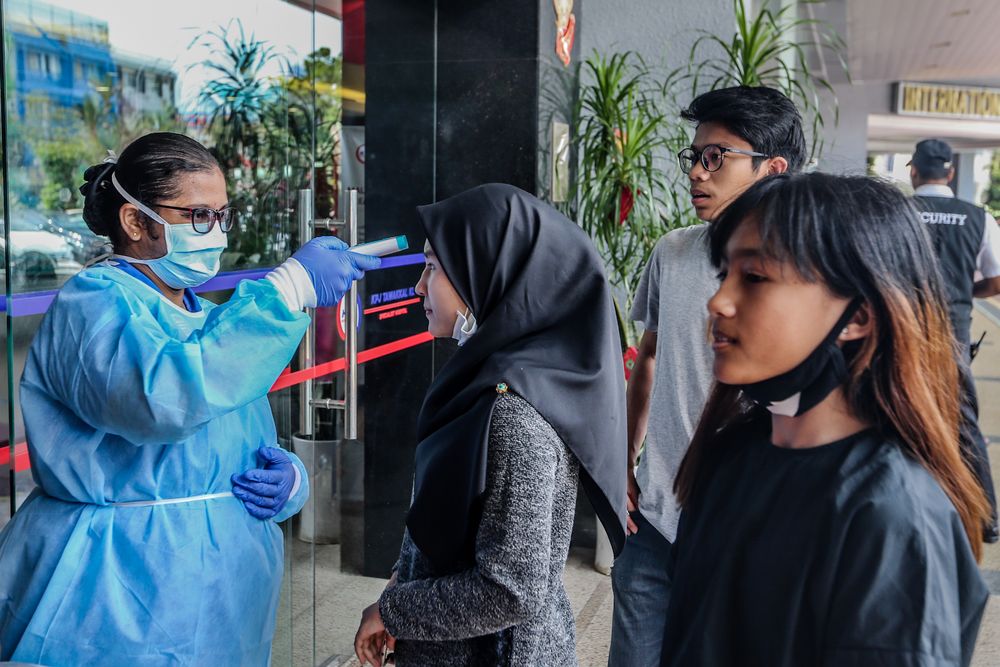KUALA LUMPUR, Jan 30 — Human rights advocates in Malaysia say the government’s move to combat misinformation and fake news surrounding the outbreak of the novel coronavirus (2019-nCoV) to prevent mass panic and paranoia is appropriate.
However, they cautioned against being excessive but instead urged for more transparency on news of the outbreak and for verified information to be channelled through official channels.
The Ministry of Health has been quick to act; it has taken comprehensive measures to prevent the spread of the virus within our national borders and been proactive in refuting countless claims and rumours regarding the outbreak in Malaysia.
Human rights lawyer and Malaysia’s representative to the Asean Intergovernmental Commission on Human Rights (AICHR) Eric Paulsen agreed that the government must counter fake news about the outbreak.
“The authorities have a duty to tackle ‘fake news’ or public disinformation regarding the Wuhan coronavirus as there are legitimate concerns of public health and public order.
“In these circumstances, freedom of speech can be limited but the authorities must not act excessively, but respond in a proportionate manner against the most serious ‘fake news’,’’ he said.
Paulsen also said that members of the public too must play a proactive role in verifying the information they received.
“The public must be more critical and discerning; they should not readily accept anything that they come across on social media and WhatsApp as there are reckless and even malicious people who are using social media to spread disinformation.

“The public should employ some common sense including checking the source of the article or author, read the content of the article, not just the headlines, check if the content is supported by citations or sources, check the date of the article as old news do get recirculated, check if it is a satirical or joke piece, and cross-check with more credible news sources or experts,’’ he said.
On Monday, the Malaysian Communications and Multimedia Commission (MCMC) and the police issued a joint statement that they are monitoring for misinformation and fake news regarding the Wuhan coronavirus.
Both agencies reminded the public that spreading false news about the outbreak was an offence under Section 505 of the Penal Code and Section 233 of the MCMC Act, and punishable by up to two years’ imprisonment and a fine of up to RM100,000, respectively.
So far, five persons have been arrested for their role in spreading allegedly fake news on the outbreak.
Senarai berita palsu berkenaan novel #coronavirus di negara ini.
— KKMPutrajaya (@KKMPutrajaya) January 29, 2020
Kenyataan rasmi mengenai novel coronavirus hanya dikeluarkan KKM dari semasa ke semasa. #WuhanCoronovirus#2019nCoV pic.twitter.com/P3Asn2gGF9
Paulsen, however, urged the government to provide more clarity on what constitutes an offence under these laws.
Article 19 Malaysia programme officer Nalini Elumalai said while it is encouraging that the government has taken steps to address misinformation regarding the virus, it is ultimately counterproductive to focus on censorship or criminalisation of free speech.
“The government has an important role to play in addressing this serious public health crisis, including addressing misinformation and promoting public awareness of the spread of the virus.
“However, censorship or criminalisation of speech will inevitably be counterproductive, making it harder to track those who are sick and suppressing the sharing of information in real-time.
“Instead of targeting those commenting on the spread of the virus, the government should prioritise transparency and openness in its own response to this global crisis.
“The public should be regularly informed of the government’s actions and policies to protect Malaysians. In the long term, the government should develop policies and infrastructures to promote the freedom to information and consider supporting fact-checking initiatives and other civil society efforts to combat misinformation,’’ she said.
Lecturer at the Faculty of Communication and Media Studies, Universiti Teknologi Mara, Shahnon Mohamed Salleh said misinformation and fake news is an inevitable occurrence following any tragedy or crisis.
“Looking at the trend over the last few years, you can almost see a pattern; that the intensity of fake news and conspiracy theory tend to increase whenever there is a crisis such of MH370, MH17 or a big event like the GE14.
“The ongoing coronavirus outbreak is no exception. There are many reasons for this. One of them is the fact that it is so easy to produce fake information and secondly, people are sharing unverified news from unreliable/unknown sources online.
“But we are not alone. The rest of the world is facing the same problem too, including China. For example, not all of the pictures and videos of some people consuming wild animals are actually in Wuhan or related to the coronavirus. But this has been (made viral) and shared and viewed by possibly millions of people worldwide.”
Shahnon suggested that the government, as well as the medical community, take a more proactive role in debunking and refuting rumours surrounding the Wuhan virus.
“The medical community online too, have done their part in exposing some of the fake news on Facebook and Twitter.
“The government needs to recognise that rumours and fake news exists and thrives in the absence of real news and facts, so they need to keep the public informed at all times,’’ he said, lauding the Ministry of Health for their role in providing clear information on the virus.
Shahnon, however, said that fake news does not constitute free speech.
“On free speech, I do not see any issue or conflict here. We can argue on the rules, guidelines and regulations but people need to understand that fake news is not free speech. That should be the principle,’’ he said.




















